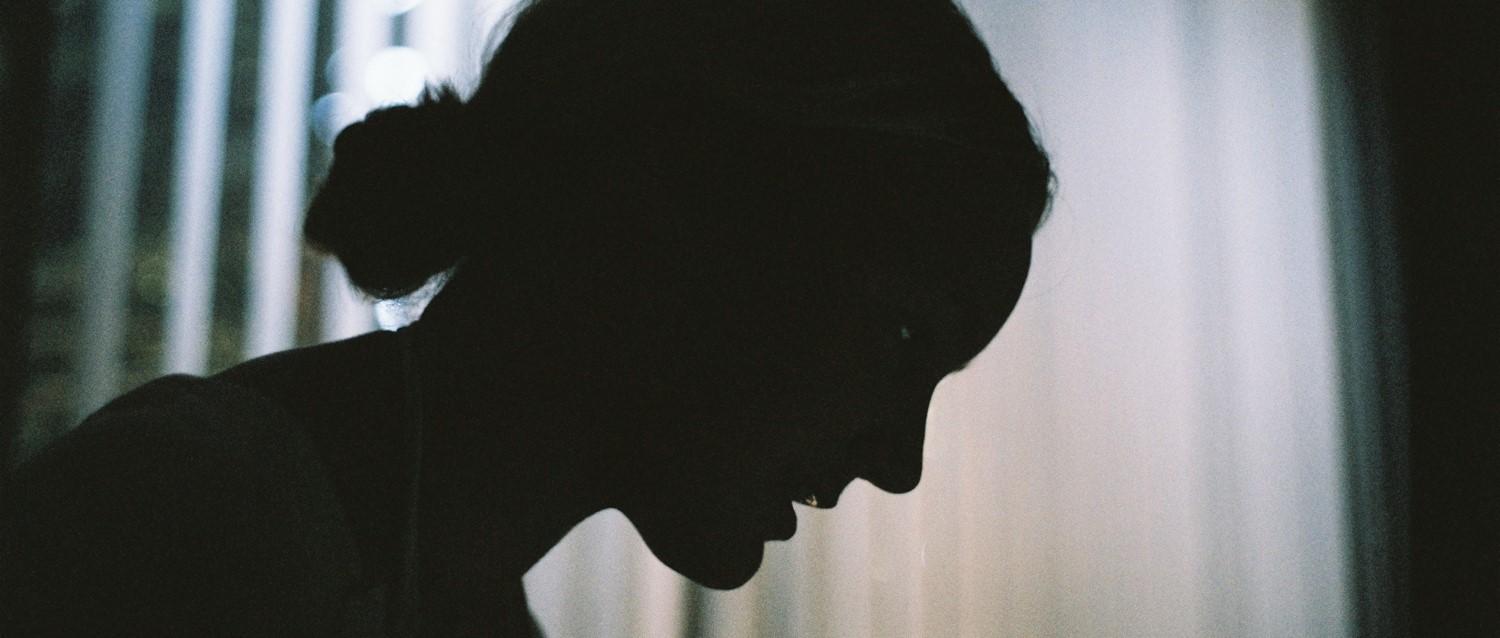
Re-sparkling - the science of finding more joy
Peer reviewed by Dr Colin Tidy, MRCGPAuthored by Amberley DavisOriginally published 23 Apr 2024
Meets Patient’s editorial guidelines
- DownloadDownload
- Share
- Language
- Discussion
You're in the garden with your loved ones, sun shining and BBQ sizzling with your favourite food. Do you think you'd be happier in this moment if this was a typical day? Or if this described an occasional summer treat?
It's easy to wish for the first scenario, but in truth, getting used to something can lose its sparkle. More than this, it can lead you into unhealthy behaviours and even affect your mental health. This is the science of habituation - and we can do something about it.
In this article:
Continue reading below
What is habituation?
Things that you once found exhilarating - a new home, favourite holiday, indulgent purchase, even time spent with your partner - can lose their sparkle, if you experience them over and over again.
This is human nature, and it's known as habituation. Repeated exposure to the same experiences or objects causes you to habituate to them, so your brain responds less to its stimuli each time. You can stop noticing things and your emotional response lessens.
There's a difference between knowing something and feeling something. You can know you have a good thing, but if you are habituated to it, you can stop feeling how good it is.
Take adorable puppies and cute babies, as one study did1. Photos of these, among other delightful things, were shown 16 times to volunteers. Each time, their facial muscles responsible for smiling - measured by electromyography (EMG) - moved less and less. They also reported feeling less pleasure, yet continued to rate the photos as adorable.
This showed that while the volunteers knew they enjoyed the babies and puppies, they no longer sparked the same feelings of joy.
The real-life effects of habituation also go beyond joy. It's linked with depression, anxiety, unhealthy relationships, and risky behaviours - even playing a role in road accidents.
How does habituation work?
So why do we habituate, if it means finding less joy and forming unhealthy behaviours? The thinking is that it's not all bad. In fact, habituation may be the key to progress, according to Tali Sharot, professor of cognitive neuroscience at University College London (UCL) and MIT (Massachusetts Institute of Technology).
The professor, who is also a senior research fellow at the Wellcome Trust, explains that our emotional responses to things habituate fast to keep us motivated and drive progress. Sharot gives the example of your first entry level job. If you found it just as exciting - or perhaps overwhelming - 10 years in, you wouldn't be driven to progress in your career2.
Ultimately, progress makes us happy, and learning, developing, and changing has helped advance humanity.
Habituation is also about survival, Sharot argues, because when we stop responding to things that are constant around us, we have more resources to deal with things coming our way that may need some response2.
However, a "delicate balance must be struck" so we can avoid the unhealthy side effects of habituating, as Sharot argues in her book Look again: the power of noticing what was always there.
Continue reading below
What is the harm of habituation?
Habituation can cause us to feel unsatisfied, bored, restless and greedy. More than this, it's linked to poor mental health and unhealthy behaviours. Enter dishabituation - a psychological trick to help us disrupt the habituation process when we need to3.
Inciting joy, managing low mood
Re-sparkling
To experience more joy and potentially help manage low mood, Professor Sharot believes that "re-sparkling" - her word for dishabituation - can allow us to see our circumstances with fresh eyes, find more enjoyment in daily life, and become more resilient to life's trials and tribulations.
This re-sparkling effect also applies to food. For many, food is one of life's great pleasures, but you may not get the same kick out of your favourite weekday lunch meal deal on Friday as you did on Monday, after that weekend break.
Case study: Mac and cheese4
Two volunteer groups were given macaroni and cheese 5 times.
Group one got them daily, the second once a week for 5 weeks.
Group one found the meal less and less pleasing.
The second enjoyed their meal just as much, week on week.
Depression
Habituation has even been linked to a whole range of mental health problems, according to the neuroscientist. 'For example," says Sharot, "people who habituate to negative events more slowly are more likely to have depressive symptoms.2
"One study found that students who had received a disappointing grade and bounced back slower than their peers were more likely to have a history of depression."
Breaking unhealthy behaviours
Professor Sharot shares with us some unhealthy patterns that habituation can facilitate. She also explains that taking breaks can trigger dishabituation, helping us to reset.
Social media anxiety
"Let's take social media," says the neuroscientist. "You may suspect that your Instagram or Twitter is making you anxious, but you cannot really tell how much it is affecting you because it is always there. It looms in the background like the constant noise of an AC - you don't realise how much of a negative effect the AC noise has until you turn it off and suddenly you go - ooohhh, so much better."
"The same is true with social media. To really measure its effect, you need to quit for a while - at least a couple of weeks."
She highlights one study where dishabituation improved people's wellbeing. 1000 volunteers who quit Facebook for one month reported being happier, less anxious, and less stressed than the 1000 volunteers who didn't. These people were surprised at their own results - they did not realise how social media affected them until it was gone5.
Toxic relationships
The above is also true for unhealthy relationships. You may suspect that your relationship is making your anxious, but you cannot really tell how much it is affecting you because it is always there.
Sharot says: "But by taking a break, by which I only mean going away for a few days - on a business trip or to visit a friend - it may be possible to dishabituate. Then you can really feel and notice the impact of the relationship upon your return and assess the extent of damage it is causing."
Risk-taking
People who habituate quicker tend to take more risks in life. Sometimes risk-taking can be enriching, like quitting your job to pursue your dream career. Others, however, risk your health and wellbeing, like unsafe sex and uncontrolled gambling.
Using virtual reality (VR) technology, Sharot conducted an experiment that involved volunteers going up a sky-rise building, opening a door, and attempting to walk a plank from a great height. "With VR, even though your brain knowns you're on the ground, it's also tricked, and you can experience a surprising level of fear."2
The volunteers experienced just that - barely taking a small step onto the plank the first attempt. But after many repetitions, habituation kicked in, fear decreased, and volunteers were able to virtually fling themselves off the edge. Sharot observed that those who habituated faster were the people who reported taking more risks in real life.
Case study: 4.15 am, 3rd September, Sweden 1967
A national law change caused all traffic to stop.
Residents switched from driving on the left to the right side of the road.
There were fears this adjustment would result in more road accidents.
To everyone's surprise, accidents went down by 40%.
It took two years for accident rates to return to baseline.
Why did this happen when this switch is a technically difficult challenge? When you're used to driving, you relax and take more risks. The new rules dishabituated drivers, triggering anxiety and more careful driving - at least for a while.
How do I dishabituate? 3 approaches
In real terms, dishabituating simply means breaking up our joyful experiences into bits. We can rarely jump on a big holiday whenever we feel bored and flat, but there are several ways to "re-sparkle", whatever your budget and schedule.
1. Take small breaks
Effective breaks come in all shapes and sizes, says Sharot:
Not switching it up enough? Swap a two-week holiday for a few mini breaks.
Understanding your relationship? Try a weekend away from your partner.
Social media break? Give it at least two weeks.
Like a massage? Even breaks during one makes it more enjoyable.
2. Variety is the spice of life
It's not all about breaks. There are other ways to shake things up and get more variety in life, which Sharot says is key: "People who have diversified their lives - perhaps by living in different places, engaging in various projects, and befriending many individuals - tend to have more psychologically rich lives.
"This is because variety puts you in a state of learning, and research shows that people find so much pleasure in learning, progressing, moving forward. Learning is change - and we can't habituate to change."
Examples:
Can't get away? Rearrange or explore new functions of rooms at home.
Need more creativity at work? Take a walk or alternate your usual office with a coffee shop.
Work not fulfilling? Consider rotating between departments if you need a change.
Sometimes a big change may be necessary for your happiness. This can feel scary and require some effort, but the long-term results are often worth it. In one study, volunteers who each had a personal change goal in mind flipped a virtual coin.
Those who got heads could go ahead - those with tails could not. After both two weeks and six months, those who made the change were generally much happier6.
Don't think material things
The variety rule generally only works for new experiences - not new possessions. You might think that possessions last a long time while experiences are fleeting, but in her book, Sharot explains that to the human mind, the opposite is true. In general, you stop noticing your shiny new watch over time, but that diving experience from 10 years ago lives on - often becoming even more "sparkly" in memory.
3. Imagine the change
For those times when you simply can't change your situation, let your mind do the work. Laurie Santos, known as Yale University's happiness professor, says using your imagination can help you dishabituate in the moment.
Close your eyes.
Imagine your life, but without the things you wish to appreciate more.
This could be your home, your job, your loved ones, and so on.
Create vivid images of what this would be like, in detail and colour.
This should help you see your life with fresh eyes.
Continue reading below
Further reading
Talks at Google: Tali Sharot on Look again: the power of noticing what was always there.
Steiner and Barry: Exploring the mechanism of dishabituation.
Epstein et al: Long-term habituation to food in obese and nonobese women.
National Bureau of economic Research: To Change, or not to change? Just flip a coin.
Patient picks for Depression

Mental health
Are mental health problems in new mothers being missed?
A UK parenting charity is calling for better support for new mothers who are struggling with mental health problems.
by Milly Evans

Mental health
Eating dark chocolate may reduce odds of depression
Research suggests eating dark chocolate could improve symptoms of depression.
by Ashwin Bhandari
Article history
The information on this page is peer reviewed by qualified clinicians.
Next review due: 23 Apr 2027
23 Apr 2024 | Originally published
Authored by:
Amberley DavisPeer reviewed by
Dr Colin Tidy, MRCGP

Ask, share, connect.
Browse discussions, ask questions, and share experiences across hundreds of health topics.

Feeling unwell?
Assess your symptoms online for free
Sign up to the Patient newsletter
Your weekly dose of clear, trustworthy health advice - written to help you feel informed, confident and in control.
By subscribing you accept our Privacy Policy. You can unsubscribe at any time. We never sell your data.